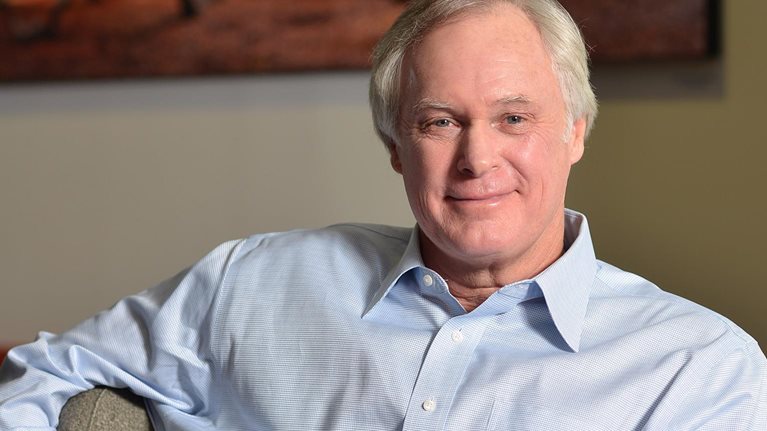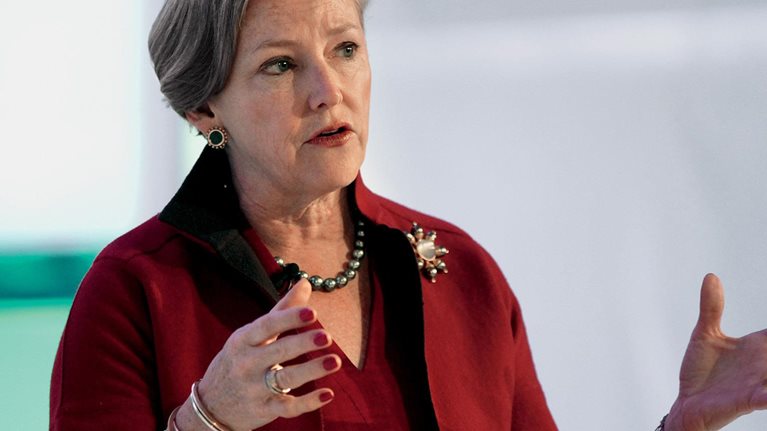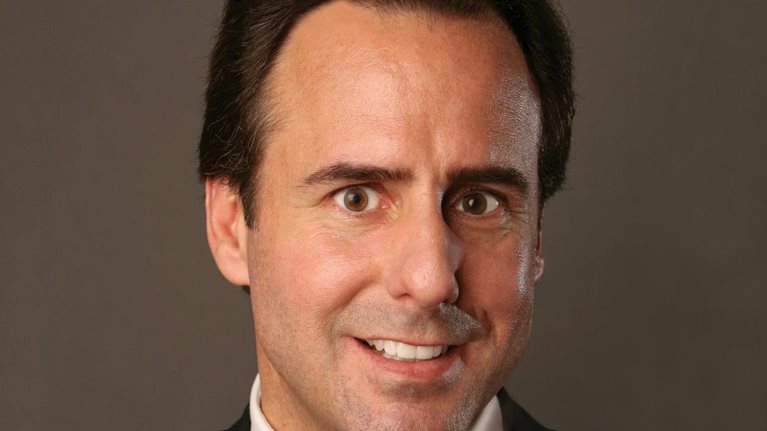Daniel Vasella’s early experiences with the health care industry were shaped by his own harrowing battles with childhood illness. As a young boy in Switzerland, he was in and out of hospitals with a host of maladies, including food poisoning and asthma. At the age of eight, he suffered attacks of tuberculosis and meningitis that forced him to spend a year in a sanatorium, away from his family. The compassion of doctors and nurses in that facility helped him through that difficult period and kindled his interest in medicine. But the remainder of his youth was overshadowed by the death of his older sister from cancer when he was 10 and the death of his father in surgery when Vasella was 13.
After graduating with high honors from University of Bern, where he studied medicine and psychoanalysis, Vasella practiced as a physician in Switzerland until 1988, when he accepted an offer from Sandoz AG, the Swiss pharmaceutical giant, to take a sales job with the company’s US affiliate. Vasella thrived in his new role. The switch from medicine to business, he says, gave him the opportunity to do work that could benefit “not one or a hundred but thousands” of people. He rose rapidly in Sandoz’s marketing organization. In 1992, after a series of successful management assignments in the United States and Switzerland, he was named CEO.
A few years later, Vasella helped engineer what was then one of the largest mergers in corporate history by joining Sandoz and its rival Ciba-Geigy to create Novartis. Vasella was named CEO of the new company and retained that position until January 2010. He was appointed chairman of Novartis’s board of directors in 1999 and continues to serve in that capacity.
As CEO, Vasella built Novartis into one of the world’s largest drug companies by sales. He shifted research away from making incremental advances in older medicines for common maladies to focusing instead on drugs for rare, critical diseases whose biological origins could be understood and treated. He pushed Novartis to invest in new areas of health care, such as generics, and led efforts to expand the company’s presence in China. He also spearheaded Novartis’s $52 billion acquisition of US eye-care company Alcon. That purchase, completed in 2010, positioned Novartis as a global leader in one of the health care industry’s fastest-growing segments. In this January 2012 interview with McKinsey’s Rik Kirkland, Vasella discusses the importance of resilience in leading large organizations.
McKinsey: Do you have the sense that, for leaders of large global organizations such as Novartis, the context has changed compared with, say, ten years ago? If so, what are some of the key differences?
Daniel Vasella: The context has changed, without a doubt—and I think it will continue to evolve. If I think about our business, there are many differences. One is that people everywhere are living longer. Another is the ascendance of new economies—Africa, China, Latin America. And then there is the rising indebtedness of governments paired with monetary expansion. So you’ve got longer life spans, expanding populations, and more wealth in emerging economies; all of those imply opportunities and risks. Aging and growing disposable income increase the demand for health care. But at the same time, they pose challenges, as government debt and weak economies in industrialized countries are the source of pricing pressures for us, which in turn forces us to push harder to raise productivity and can lead to restructuring and loss of employment. All these things create tremendous tension. You want to do the right thing, but you have many different responsibilities.
McKinsey: Do you find you are spending more time dealing with officials in the public sector, and is that a new dimension of the CEO’s job?
Daniel Vasella: Our industry has always been highly regulated. But lately, what we see is a paradox: people seem to have less trust in government, yet at the same time they seem to be asking governments to impose more regulations. And it’s not just our industry. Compliance—with rules, with regulations, with societal values—is something that takes up more of a business leader’s time now than ever before.
McKinsey: What about the increased pace of innovation? Is that changing the nature of the leader’s job as well?
Daniel Vasella: We definitely see this trend in our industry. The applications of computing and genetics to the biomedical field are exploding. We can do much more today than we could ever do before. We are on the verge of being able to decipher your genome for less than $1,000. We are moving to an era of so-called personalized medicine, where we will be able choose the treatment knowing the specific nature of the disease in an individual. In cancer treatment this is most advanced.
And of course technology has changed the way everyone communicates. When I look around today, everybody’s on some sort of communication tool—a smartphone or iPad or laptop. Opening the computer is the first thing I do in the office every morning. Anyone, anytime can contact me, and in general I do respond: the job is 24/7, 365 days a year.
McKinsey: Do you delegate e-mail to someone else?
Daniel Vasella: No, I don’t like to do that.
McKinsey: Doesn’t that make it hard to control your agenda?
Daniel Vasella: Well, I don’t pretend to be in control of my agenda. That’s an illusion. You can’t have a scheduler or an assistant who is a guard dog and tells whoever’s trying to get on your calendar, “Don’t even try.” You want someone who is welcoming and accommodating, but nevertheless is able to set boundaries.
McKinsey: Do you take the same approach to external communications and your interactions with the media?
Daniel Vasella: People have a legitimate demand for access to the CEO. But you have to modulate that so you avoid overexposure. To the media, you are a product. And the press will paint you as either a hero or a villain—whatever sells. So if they paint you as a hero today, you should be prepared to be painted as a villain tomorrow. Not everything you do will work out every time, and you have to accept that people will be unfair.
McKinsey: To what extent should a leader share doubts and fears about things not working out with members of his team?
Daniel Vasella: I believe that you have to be able to express doubt in your team and with a board. If you don’t—and you pretend—then you are playing a role, which others will sense rather easily leading to an unhealthy situation. That’s not to say you should act like you’re in a confessional. Facing doubt, you have to recognize if and when a decision is needed. If it is, you have to take the sword and cut through the Gordian knot and make a decision, despite any uncertainties.
This also raises the question of decision making and leadership: are you being led by the context or do you set direction? Are you being led by your followers and are they choosing for you? Or do you choose and do you lead? I think you have to be aware of the context and what people expect and hope for. But as a leader, you’re not there to feed people with all the things they hope for. Your job is to recognize the right goal and path forward and then to align and persuade people to do the things you believe will be relevant for the long-term success of the company. People want you to lead. And if you lead, you will also hurt. You will satisfy sometimes. You will celebrate and you will blame. That’s all part of your job. You have to have the backbone and the integrity to be straight with people.
McKinsey: Can you teach those sorts of skills? How do you think about your role in developing future leaders?
Daniel Vasella: There are hard skills, which are in some ways easier to transmit, and there are soft skills, which I find are much more difficult to teach. You can teach concepts, but you can’t teach experiences.
We know that to be a good leader, it helps to be intelligent, able to think conceptually. Leaders also have to have a certain level of ambition; they need to be people who take pleasure in creating, growing, and building. But those qualities need to be balanced by skepticism—recognition that not everyone wants you to succeed and that sometimes bad things happen.
And you have to be able to resist seduction. If I look at all the reasons leaders fall, it’s usually the soft factors. I talk to my team about the seductions that come with taking on a leadership role. There are many different forms: sexual seduction, money, praise. You need to be aware of how you can be seduced in order to be able to resist and keep your integrity.
McKinsey: How can leaders stay grounded?
Daniel Vasella: Every CEO needs someone who can listen—a board member, an adviser, a partner—someone to whom he can speak in total confidence, to whom he can say, “I’ve had it.” You need someone who understands and can help you to keep the balance. Leaders often forget the importance of stable emotional relationships—especially outside the company. It helps tremendously to manage stress. Your partner will do a lot to help keep you in sync.
McKinsey: What about the physical aspects of the leader’s role?
Daniel Vasella: Of course you need physical stamina; you travel a lot and there are different time zones, dinners and speeches, and all kinds of other demands. But I think psychological stamina is even more important. You need to be able to switch on and switch off. Are you entirely present when you’re present? And can you be entirely away when you’re away? You need to have a moment when you say, “I’m home now,” and work is gone.



